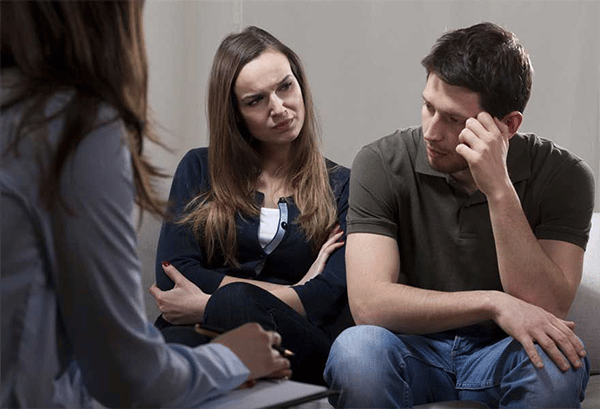The Family, Loved Ones, and Friends Treatment Education
Friends, family, and loved ones play important roles in the early recovery process.
When individuals first get out of treatment at The Best Treatment Center, one of the suggestions is to build a strong support system. This can be started during treatment with family aspects of our therapy program. Recovering from addiction is a tough journey, and upon return moral support and encouragement shouldn’t be the only way that friends, family and loved ones should do to contribute. While your support is crucial, there are many other ways to get involved in the healing process:
Attending therapy sessions to learn better communication skills and how to set healthy boundaries.
AA or NA meetings or support groups with your loved one could be educational
Learning about the disease of addiction, and also educating other family members or friends
Working with your family one to create a stable, sober home environment
Sit down and think if you, yourself has any behaviors that could/could have contributed to the loved one’s addiction.
At The Best Treatment we believe that there are many root causes that bring on addictive behaviors, and usually this involves more than just one individual. Issues typically arrive in one’s home life, work, relationships, or social network. There can be times when treatment and healing bring up troubling issues. When this happens it is important that family and loved ones of the recovering addict are there to step up to the challenge. Even when issues are painful or difficult, the end goal is sobriety and a healthy and happy life for your loved one. Talking through pain, trauma, and difference will lead you in the right direction of an entire healing unit of friends and family.
Signs of Drug and Alcohol Addiction
It would make sense that the loved ones of the addicted would be the first to notice signs and symptoms of behaviors that project addiction. It is very easy to have a hard time facing the facts that a loved one may struggle with drug or alcohol abuse and addiction. It should not be a fear to confront someone with a disease that is recoverable. Friends and family are often the first to notice the signs and symptoms of addiction.
For the sake of your own health and the well-being of your family, as well as the health and safety of your loved one, it’s important to react to the signs of addiction as soon as they are first discovered. Here are more of the most common physical signs that there are problems with drug and alcohol abuse.
Reddened or paler complexion
Weight gain or loss
Tremors or shakiness throughout the day
Watery or bloodshot eyes
Pinpoint pupils
Dilated pupils
Poor motor coordination
Insomnia or excessive sleeping
Bruises or needle marks on the arms
Sweating without excessive physical activity
Some of the most noticeable red flags involve changes in a loved one’s moods, appearance, or behaviors:
Poor job performance
Dramatic mood swings
Isolation from friends or family
Loss of interest in favorite activities
Failures at school or classes
Constantly borrowing (or stealing) money
Depressed mood
Anxiety and restlessness
Outbursts of anger or aggression
Poor hygiene and grooming
Secretive behavior
These physical or behavioral changes don’t always point to addiction. There are many of the above characteristics that could also indicate other mental health disorders or eating disorders. Either way, it’s critical that you take steps to help the person you care about, no matter what their underlying problem may be.

How to Support without Enabling
For many families, codependency is one of the underlying factors in addiction. Codependency is a behavioral pattern in which one member of a relationship enables another’s addiction in order to gain approval, love, or power over the other. This enabling often occurs in such subtle ways that it’s hard to tell the difference between genuine support and codependency. In many cases, the codependent partner isn’t even aware that he or she is contributing to the loved one’s destructive behavior.
Codependency itself is a form of addiction. Most codependents cannot recover their emotional integrity without intensive therapy and behavioral modification. In addition to attending support groups like Al-Anon, codependent family members can seek individual counseling, read literature on codependency, and attend family therapy sessions at a treatment facility.
Encouraging a loved one to seek help
Reaching out to your loved one at this time is more important than anything so it is necessary to intervene immediately. It may be a hard task to talk to someone who may not be recognizable anymore, when someone is in the downward spiral of addiction there may have been extreme amounts of damage already done. It is normal to feel scared or helpless during this time.
Avoiding criticism and judgement are important while allowing your loved one to know how much you care about them. Let them know that you support them completely, and that you’ve spoken up out of love and concern. By encouraging treatment, there will be many options to work through previous problems with a professional therapist.
At The Best Treatment Center, we know that healing from addiction is a family process. In all of our levels of care we offer family therapy aspects to the treatment program. By each individual having a customized treatment plan from the beginning we know what within the family needs to be worked on.

